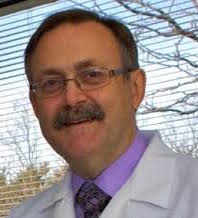Some topics are more difficult than others, even when it comes to physicians. Or perhaps especially when it comes to physicians. 
OUWB’s Medical Education Week will cover one such topic, the impaired physician, at a presentation led by Carl Christensen, M.D., Ph.D., 11 a.m.-1 p.m. May 20 in the auditorium, Administration Building East, Beaumont, Royal Oak. The discussion continues for OUWB medical students 1:30 p.m., in the OUWB classroom in the administration building.
Chuck Gehrke, M.D., and James Walla, RN, BSN, CCRN, will join Christensen to discuss how addiction disables physicians and other healthcare professionals, as it does in other fields throughout society.
“People don’t want to be involved or want to identify who is disabled and what to do about it,” explains Christensen. “We will talk a little bit about the treatment involved. I’m going to give scenarios about doctors I’ve worked with in the past and ask the audience what they’d do in the situation.”
Then, says Christensen, Walla will talk about his history, and Gehrke will explain what medical personnel can to do to help their colleagues.
Christensen is medical director of the Michigan Health Professionals Recovery Program (HPRP). Established through state legislation in 1994, HPRP is a program through the Michigan Department of Licensing and Regulatory Affairs, Bureau of Health Care Services, to support the recovery of individuals within the medical field struggling with addiction. Its mission is to help participants safely return to practice and to protect the safety of the general public. Gehrke is a past medical director at HPRP.
“I’m glad OUWB’s doing this, because this is something most medical schools don’t really teach,” says Christensen, an OB/GYN who started working with pregnant addicts about 15 years ago.
The problem of addiction within the medical field is fairly common and challenging to remedy, says Christensen, in recovery himself for 17 years.
“It’s very difficult for somebody to do something about it because it’s human nature not to want to interfere, but both Dr. Gehrke and I know of doctors where people refused to do anything and they died and they endanger patients along the way,” explains Christensen, adding that it is imperative to reach out if anyone knows a doctor, a nurse or a pharmacist who may be impaired. “We go over what you can do about it.”

